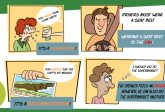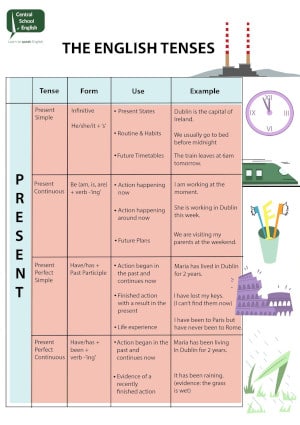Clauses and conjunctions

There are many ways to learn a language. We start learning our mother tongue from the time we are born. We hear people speaking around us and we slowly begin to understand the meaning of words. We begin to repeat words and start communicating with other people. Within a relatively short time we begin to produce grammatical structures. We move from single words to whole sentences. We make mistakes but over time we speak more and more and make less mistakes. We do this with no knowledge of grammar. This is an example of the incredible power of the human brain!
Later on in life when we try to learn a language we might think “I’m so bad at learning languages. It’s so much easier for children!” In fact, there is no clear proof that children learn languages faster or more easily than adults. Many language experts say language learning has more to do with environmental and behavioral factors. When we immerse ourselves in a different culture and language we can learn the language as fast as children do. The problem is that most language learners don’t do this!
They feel more secure in their own culture and treat the new language as something they have to study and practice a few times a week. This involves studying grammar and learning vocabulary. Of course, studying grammar and memorizing vocabulary helps. But we can learn a new language much faster if we immerse ourselves in the culture – reading books or online articles, watching movies and more importantly talking to people, which we can do online if not face to face.
So what’s my point? Some of the best most advanced English language learners I have met know very little about grammar! They have learned English in a similar way to how we learn as children – by listening to songs and reading the lyrics, by watching movies, by speaking to people and making lots of mistakes! Yes, grammar is important – especially if you are going to sit an exam like the FCE or IELTS.
However, you will learn a lot of grammar subconsciously by being active in the language. You will be able to complete grammar exercises without knowing all the rules. Like a native speaker you will ‘just know’ the answer because you have seen, heard and used the grammar structures many times. So don’t be too obsessed with grammar. Study grammar but more importantly…get active in your learning!
This blog looks at clauses and conjunctions.
What is a clause?
A clause is any group of words that has a subject and a main verb.
For example:
Ann eats pizza is a clause. It has a subject Ann and a main verb eats.
Paul drives is a clause. This has a subject Paul and a main verb drives.
The children left school is a clause. It has a subject the children and a main verb left.
Tim has a beautiful home is a clause. It has a subject Tim and a main verb has.
What is a conjunction?
Conjunctions are words that we use to join clauses together to make long sentences.
For example, I like pizza is a clause.
I don’t like pasta is a second clause.
If we want to join these two clauses together to make a longer sentence we can use the conjunction but
We can say:
I like pizza but I don’t like pasta.
Some common conjunctions are words like:
And Because But
So If Or
However Although Despite
The sentence I can help you has only one clause.
The sentence I can help you if I have time contains two clauses. They are joined together by the conjunction if.
Main clauses and dependent clauses
In English, sentences consist of main clauses and dependent clauses. A main clause is a clause that can stand by itself as a simple sentence.
A dependent clause contains a subject and a verb but it does not form a complete sentence.
For Example:
When I arrive home, I usually eat my dinner.
In this example the main clause is I usually eat my dinner.
This is because, the clause I usually eat my dinner can form a complete sentence.
The dependent clause is when I arrive.
This is because the clause when I arrive cannot stand alone as a sentence. It must have a main clause to have any meaning.
Here is a second example:
If I see John, I will tell him the news.
In this example the main clause is I will tell him the news.
This is because I will tell him the news can form a complete sentence.
The dependent clause is If I see John. This is because if I see John cannot stand alone as a sentence. It must have a main clause to have any meaning.
In the sentence
I am going on holiday after I do the exam.
The main clause is I am going on holiday.
The dependent clause is after I do the exam.
Test Yourself
Learn to SPEAK English
Join a live online English tutor to get help with your English.
Individual and group classes with our expert teachers.
Vocabulary
Mother tongue: The first language we learn as children
To immerse yourself in something: to become completely involved in something
Subconsciously:adverb to describe doing or feeling something without thinking actively
To be obsessed with something: TO be unable to stop thinking about something
Idioms
Face to face: To meet someone in the same physical place
Example: We’ve been in contact by email for a long time but have never met face to face.
Thank you for reading our post. You’ll find more English grammar tips elsewhere on our site and if you’d like information on our online English courses in Dublin, please do not hesitate to contact us.







